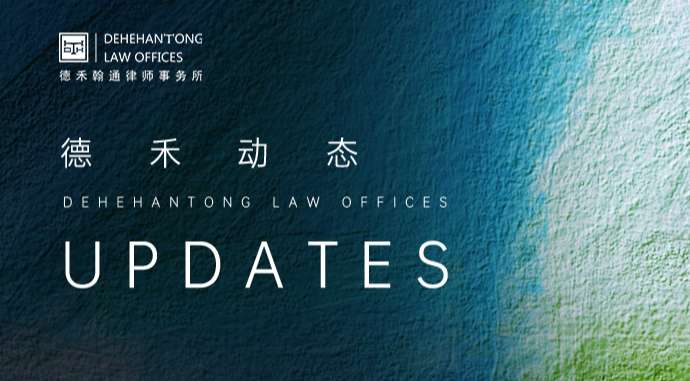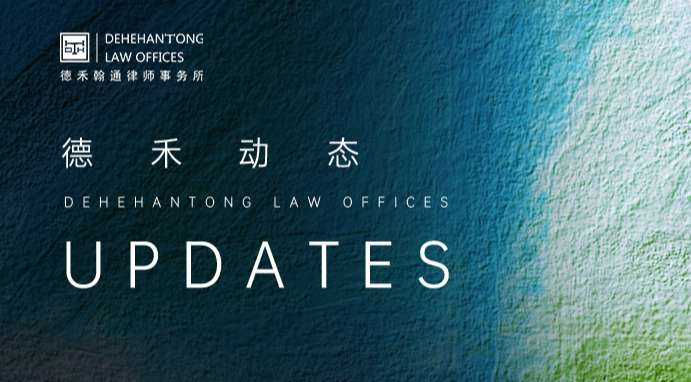The new limited recourse service function of ticket exchange is discussed
On August 12, 2024, the Shanghai Securities Exchange issued the Notice on the Issuance of the "China Bill Business System Direct Connection Port Specification V1.3".
The new system direct connection port specification adds "limited recourse service" related function points:
1. Market members can register and maintain information such as whether their limited recourse service commitment letter has been signed through the supplementary information registration confirmation message;
2. The drawer can register the scope of recourse on the bill when it registers the issue through the supply chain platform;
3. For bills with registered scope of recourse, in the subsequent circulation process, the system can send the scope of recourse through the detailed information of the bill and other messages to the counterparty.
"limited recourse service" new function
To implement the "Non-Transaction Branch Volume" of the specific new system direct connection interface specification V1.3, add an extended information component of "ticket recourse scope selection" in the "Ticket information Registration Application" message (NES.001.001). If the drawer fills in the extended attribute of "Choice of Scope of Recourse", the drawer, acceptor and payee must be added to the whitelist of limited recourse services, and the instrument will only support recourse to the acceptor and its guarantor (if any).
This means that the technical specifications of the new system already support the drawer of the ticket platform to have the option to customize the scope of recourse for the ticket.
In the "Enterprise Participant Supplementary information registration confirmation" message (MEM.013.001), there are ① when the enterprise signs the limited recourse service commitment letter, send this message to the fare exchange, registration and signature status (SS01); ② The enterprise that has signed the limited recourse service commitment letter sends this message to the ticketing exchange to register the limited recourse service whitelist information (SS02); And ③ The enterprise that has signed the notice of withdrawal from the limited recourse service sends this message to the ticketing exchange to exit the limited recourse service whitelist (SS03). These scenarios correspond to Service On, Service Whitelist Setting, and Service Off respectively.
At the same time, combined with the above three types of registration message behavior, In the attached Document Format Standard of Bill Business System Business Parameters, the exchange has standardized ① bill business service switch file for business processing channels, ② full bill business whitelist file, ③ full signed bill business service commitment letter file, ④ Bill business service switch update file for business processing channels, ⑤ bill business whitelist update file and ⑥ bill payment business data file The six parameter file formats describe the "Ticket business Service Type"field as "LMTREC limited Recourse Service".
This system upgrade is an important update after the electronic commercial money order system (ECDS) was offline and the new generation of bill business system was fully online. This provides enough imagination for supply chain notes to meet the needs of multiple business scenarios in the future.
Practice cases in 2022
As early as December 2022, the Shanghai Ticket Exchange introduced the innovative business of limited recourse discount of supply chain bills carried out by Simple Exchange Platform and Zheshang Bank.
This service uses the features of the non-recourse factoring service for reference. The actual application scenarios are as follows:
A and B enterprises are respectively the downstream core enterprises and upstream chain enterprises in the building materials industry. Enterprise A handles settlement in Zheshang Bank all the year round and has a certain idle line of credit, and the settlement method of both sides adopts commercial acceptance bill.
Enterprise B intends to supplement liquidity by discounting the supply chain notes accepted by enterprise A. Since the discount applicant may still be claimed, the relevant credit risk (debt) cannot be completely released from the table. After the normal bills are due, the online recourse can be initiated according to the following process. As a small and micro enterprise, Enterprise B has no idle line of credit in the bank; The discount business needs to occupy the credit line of the discount applicant, then enterprise B can not handle the discount.
The limited recourse discount service scheme is based on the premise that the acceptor (Enterprise A) has the credit line of Zheshan Bank, and the clause of giving up the recourse to the discount applicant (Enterprise B) is embedded in the discount agreement, so that enterprise B is excluded from the scope of recourse, which realizes the complete transfer of bad debt losses and optimizes the balance sheet. In addition, this program simplifies the financing access of enterprise B, does not require its own line of credit, and obtains a lower capital price and reduces financing costs.
For nearly two years, the author has not found similar cases or practice reports in public channels.
The effect of waiver of recourse
The innovation point and key point of the above example is that the discount agreement between the bank and the discounter contains the clause of giving up the recourse of some bills.
So, is such an agreement valid? Some people think that since the recourse right of the bill is the legal right of the bearer, the parties waive the right through the contract, which is consistent with the law, and of course valid; And some people think that the act of giving up the recourse of part of the bill is a violation of the provisions of the bill law prohibiting conditional endorsement, so the agreement is invalid.
Although laws and regulations have not made clear provisions on this issue, the author believes that the agreement to give up the recourse of the bill belongs to the agreement of the true intention of the parties, not the record of the bill endorsement (including discount); And the agreement only binds the two parties to the agreement and does not involve other bill debtors. Therefore, it is far too far-fetched to argue that the prohibition against conditional endorsements has been violated.
In judicial practice, as long as the agreement to waive part of the right of recourse is the true intention of both parties and is not an invalid or revocable legal act, the parties can waive the right through an express way, which is legally binding between the parties. (2021) Supreme Court Judgment No. 5052 held the above view.
It should be emphasized that the terms of the waiver of recourse agreed by both parties cannot be used against a third party in good faith. That is to say, when the uninformed bearer claims recourse to the debtors, the debtors cannot plead that they have signed a "recourse free agreement". In a series of judgments, such as (2017) Su Min End 357, (2017) Su Min End 358, (2017) Su Min End 360 and (2017) Su Min End 362, the court held the above view.
In the field of bill trading, the "Bill Trading Master Agreement" (2016 edition) signed by the bill market participants has the following agreement for the holder, "... Waive recourse against the previous endorser, but retain recourse against the drawer, acceptor, guarantor of the acceptor, discounter, guarantor of the discounter (if any) and the former endorser of the discounter." It also proves the legal effect of giving up the bill recourse.
Conclusion
Going back to the case of the simple exchange platform, if the bill is rediscounted in the future, then the rediscounted post bank can still pursue the former endorser of the discounter according to the Master Agreement of the Bill Transaction.
However, in any case, this attempt to innovate the business and the new "limited recourse service" function of the direct connection port specification still makes people look forward to further standardized innovation in the bill market. This is not only conducive to further promoting the "receivables bill" and enhancing the efficiency of market flow, but also reflects the inherent vitality and vitality of the bill market, and reflects the initial intention of the state to support the financing of small, medium-sized and micro enterprises.
Recommended Information
-
ArticlesRecent private fund filing feedback key points analysis2024-09-29
-
UpdatesDehehantong participated in the celebration of the 75th anniversary of the founding of New China2024-09-29
-
ArticlesAn analysis of founder's personal repurchase responsibility under the buyback wave2024-09-27
-
Case Studies6 Reflections on commercial dispute resolution cases behind case number2024-09-26
-
ArticlesInterpretation of the core terms of the investment Agreement (I) - the right of first refusal and the right of joint sale2024-09-25















